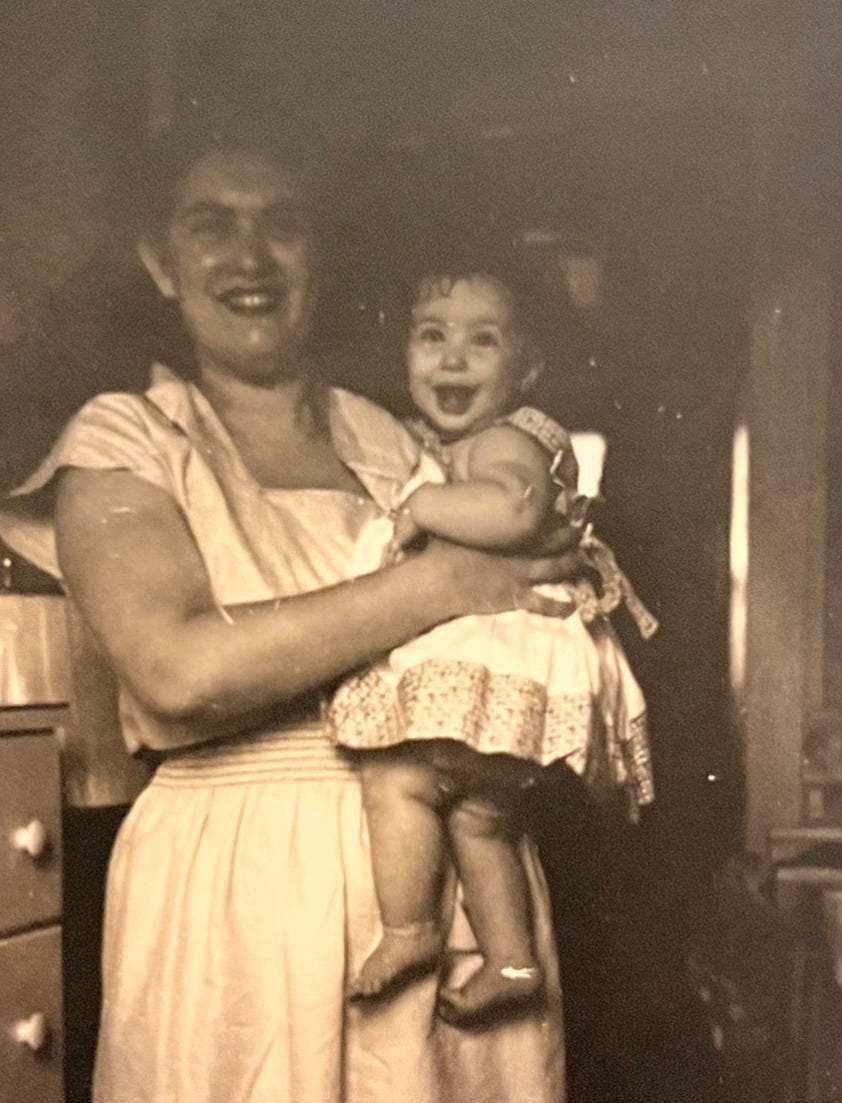The Mother’s Day Myth
Maternal mythology, sacred accountability, and the ones who had to raise themselves
We’re told the same story every May.
That mothers give endlessly.
That they sacrifice quietly.
That they pour their lives into their children with a kind of sacred, selfless devotion. And for that reason, they deserve a day—a holy, floral, brunch-filled day—to be celebrated, pampered, and praised.
But what if the mother already receives worship all year long? What if the woman in your life wasn’t a martyr, but a monarch? What if she didn’t raise you so much as reign over you?
For many of us, Mother’s Day isn’t a celebration. It’s a performance we were trained to uphold. Not to honor maternal love, but to preserve an illusion. One that says mothers are always nurturing, always righteous, always worthy of reverence simply because they gave birth. But the truth is more complicated.
Because some of us grew up in houses where the mother didn’t lose herself in service. She built a kingdom. One in which we were not children, but subjects. Where love was conditional, criticism constant, and boundaries nonexistent. Where dissent was betrayal and where freedom was treason.
Still, Mother’s Day came. With cards. With flowers. With forced gratitude.
With scripts most are too afraid not to follow.
North American culture doesn’t like to hold women accountable.
We’ve been so obsessed with breaking free from patriarchal control that we’ve forgotten to examine matriarchal domination.
In our rush to crown women as empowered, independent, and unassailable, we’ve created a new kind of untouchability. One that protects toxic behavior when it’s wrapped in motherhood.
Feminist culture told us women can do it all. Raise babies. Lead businesses. Burn the system down and build something better. And in some ways, that was needed.
But what did biblical culture advise? Because the Bible never made motherhood synonymous with holiness. It honored it, yes. But it didn’t idolize it.
Biblical mothers were complex. Brave. Flawed. Sometimes disobedient. Sometimes prophetic. They weren’t placed on pedestals—they were placed in stories.
Their legacy wasn’t in their perfection. It was in their impact. Sometimes devastating. Sometimes divine. But the stories don’t always tell us to revere them.
The Hebrew scriptures do not demand blind loyalty to mothers. In fact, they make space for mothers to be questioned, resisted, and even left behind when the call of God required it.
Yeshua himself says, “Who is my mother? Who are my brothers?” And then points not to biology, but to those who do the will of God.
That wasn’t a rejection of Mary. It was a redefinition of family—one based not on blood, but on spiritual alignment.
He honored his mother deeply, but he did not confuse her with God. He did not obey her when her fear tried to hold back his mission. He obeyed the Voice that called him forward, even when it cost him her approval.
This is not the version of motherhood our culture teaches us to celebrate. The biblical narrative doesn’t sentimentalize motherhood. It spiritualizes it.
It understands that real mothers don’t raise obedient children. They raise souls—preparing them not to orbit around their own wants and needs, but to follow a path even if it leads them away.
In other words, the sacred mother is not the one who demands celebration. She is the one who knows when to release you. And if that’s not the mother you had—then you are not wrong for feeling what you feel.
You are not ungrateful.
You are not disloyal.
You are awakening.
So what do you do with all of this?
With the ache, the programming, and the guilt that still surfaces when you don’t want to send a card or pick up the phone or participate in a ritual that never honored the reality you lived through?
You tell the truth.
And then you reclaim what motherhood actually is.
Because mothering isn’t reserved for women who give birth.
It’s not measured in diapers changed or meals cooked or emotional labor logged.
It is measured in presence.
In protection.
In wisdom offered without control.
In the ability to hold space for someone else’s becoming without making it about your own reflection.
True mothering doesn’t smother.
It doesn’t shame.
It doesn’t force allegiance.
It creates safety for growth—even if that growth moves the child out of reach.
Some people receive that kind of mothering from their biological mothers. Some don’t.
Some receive it from grandmothers, godmothers, chosen mothers, mentors, friends.
Some learn to offer it to themselves after years of mother-hunger and spiritual re-parenting.
And some may be here to embody a new lineage of motherhood entirely.
A lineage that tells the truth.
That breaks the spell.
That stops pretending silence is love.
A lineage that can say: My mother gave me what she could, and I am choosing to mother differently.
With clarity.
With boundaries.
With sacred accountability.
Because real mothers don’t ask to be worshiped.
They make space for revelation.
They raise prophets.
They release control.
They become Sinai—the place where truth descends, and a new people begin.
So if this Mother’s Day feels heavy, let it.
Let it show you what needs to be grieved.
Let it show you what you’re here to restore.
And if no one ever told you this before:
You are allowed to mother yourself.
You are allowed to mother the world.
You are allowed to carry the name “Mother” with dignity, even if the one who birthed you didn’t carry it well.
You are not ungrateful.
You are not hard to please.
You are not broken.
You are simply ready for a love that doesn’t require your silence or performance to survive.
You might even be a better mother, as a man.



